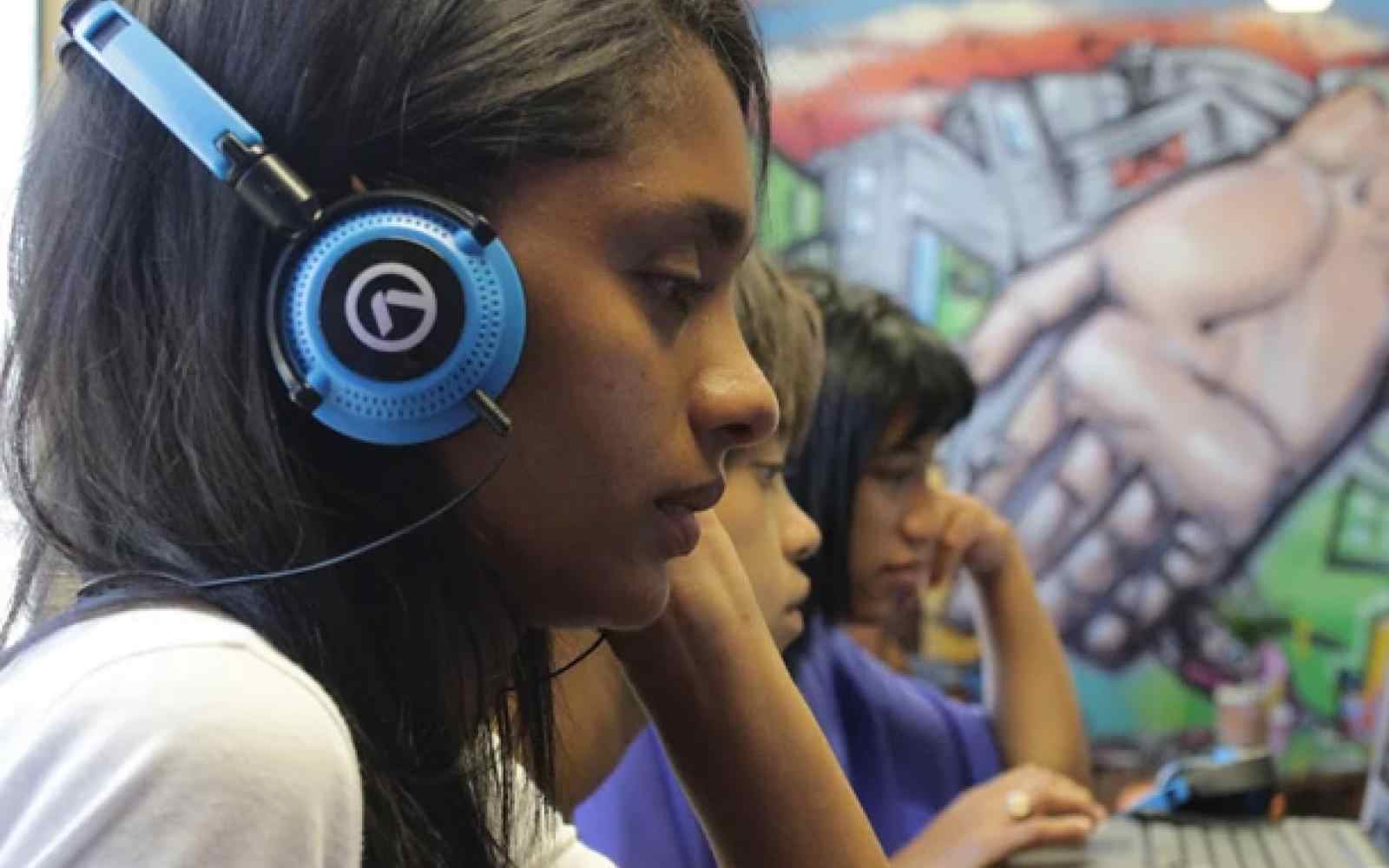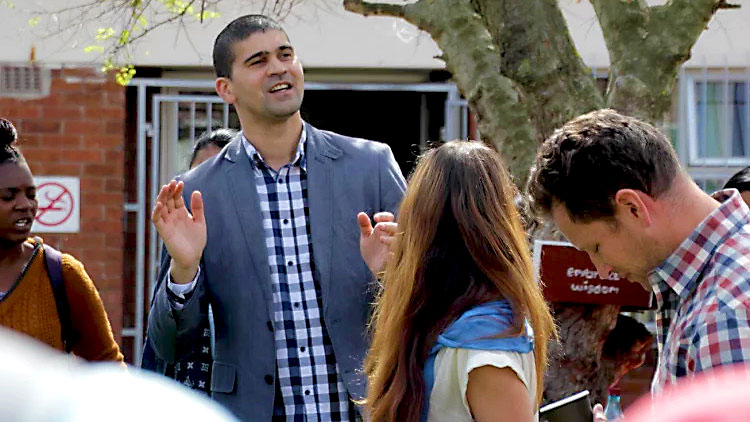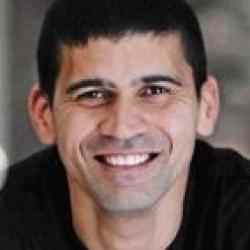Trust Young People to Lead for Better Results

Trusting young people to lead is a critical insight for Africa, where 70 percent of the population is under the age of 30, and about half of these young people lack jobs. The population of young people in Africa is growing so fast that half the world’s young people will be living in Africa by the year 2040.
"We can’t just educate youth," says Allan Van Der Meulen, editor for a youth-led marketing start-up business in the Mitchell's Plain township in South Africa. "Don’t just teach them some stuff—actually trust them to lead. Because young people best understand our problems, so let us solve it then. Put us in charge."
Social innovators are redefining the story of Africa’s young people because they are seeing that the world has changed: getting a job no longer requires mastering repetitive skills. Instead, businesses remain competitive by hiring young people who have the skills for working in a dynamic environment where fluidly organized teams discover and solve problems, and where team members are prepared to show leadership at any time.
In order to thrive in this new world, each young person must be enabled to be a changemaker, Van Der Meulen said. "The aim of every changemaker is to create a new norm where people are not focused on negativity or problems, but they are actually focusing on solving the problems. And the new norm should be: 'Oh, I wake up. I see a problem. I fix it'."
Read more: Ashoka is transforming the way young people grow up
Van Der Muelen's township, Mitchell’s Plain, is a sprawling, 42-square-mile expanse of sand flats along the coast near Cape Town that is occupied by about 300,000 people. Most residents are poor and fewer than half have jobs. About one-fifth of the population lives in shacks, most of which lack electricity and running water.
About two-thirds of the population of Mitchell's Plain is younger than 30, and 40 percent of school-age people are not in school. Last year, Mitchell's Plain was reported to be the most dangerous part of South Africa.
"Most times people look at young people as a problem that needs to be solved," Van Der Muelen said. "In my area, the gangs rule. It is easier to find a drug dealer than to find a library. On your way to school you have a 70 percent chance of getting robbed at any time. So I almost fell into the same trap."

One day a cousin recommended that Van Der Muelen go to a Youth Café where a jazz band was playing. "I went to hear some music but what I found was knowledge," he said.
The Youth Café was created by RLabs, an organization that helps communities strengthen themselves through training, innovation and entrepreneurship. They are a space for the township’s young people to gather—many of them unemployed, school dropouts, and hanging out on streets where crime is rampant. The Youth Cafés are designed to look like a store you'd find in a more affluent community: a little bit Apple store, a little bit Starbucks, with some of the playful, stimulating design features that you might find on the campus of a tech company like Google.
"We say that we are in the business of hope, so when someone walks in there, the place must reflect hope," says Rlabs' founder Marlon Parker. "Even though outside it’s broken—you may live in a shack or an informal settlement—when you come in, you will see fine art on the wall, someone serves you coffee or tea—it’s a different kind of environment.”
There’s a lot of education happening at the café at any given moment, in the broadest sense of the term. The cafe is organized into four zones: there’s an indoor playground space where people hang out, brainstorming, socializing, or learning about business strategies and social entrepreneurship. In an area called the “engine room” they can enjoy refreshments and do homework. There’s a space filled with computers and laptops called the “techno park,” and a space called the “innovation factory” which has chairs facing a stage and a screen for presentations and classes.
"It is young people helping young people change their lives," Van Der Muelen said. He followed a typical journey, from first frequenting the Rocklands Café when he was 19 years old to becoming a leader there: "I got an internship at RLabs and then I started facilitating some of the classes that I had completed."
“What is really unique about the cafes are that they are cashless—you can’t use cash in the cafe,” Parker notes. “You have to use a digital currency that we created because we felt that money shouldn’t prevent young people from spending in the cafe—that's immediately going to become a barrier. Instead, the way you earn the currency is to do good in your community—so you must be a changemaker in your community.
We realized that every young person can create value in their communities . . .
“By being a changemaker, you earn currency that you can spend in the cafe—but not only in the cafe. You can go and spend the currency to buy toiletries at a retailer, or go and have your hair cut. You can go to the hairdresser. You can even purchase educational programs. It’s a kind of closed marketplace that we have created."
Van Der Muelen is project lead for the program that allows young people to use RLab's special currency to "buy things like clothing, they can buy cell phones, technology, bus tickets," he said. "Basically everything they need to be successful in life."
This experience is intended to convey a deep lesson: rather than viewing themselves as unemployed or unemployable, young people should see themselves as the owners of value that they can bestow on their community, and on an employer who will pay them for it. “We realized that every young person can create value, in their communities," Parker said.
"At RLabs, we teach them that they can sell that value in the community. In this instance, the value they were creating was really the product of their good deeds. The important thing for young people is to remember, ‘create value first, and once you’ve created value, then realize that the time you are spending can actually capture value for you—you can earn some money through that’.”
Van Der Meulen's latest venture is an online platform that helps young people get interviews with local employers by giving them a place where they post short videos talking about their skills and abilities, rather than static words on a CV.
RLabs is helping young people "reframe" their role in society this way, so that they see that they already possess value that they can cultivate, and offer to employers. As businesses also see and experience this value in the young population, it will go a long way toward addressing the problem of youth unemployment.
